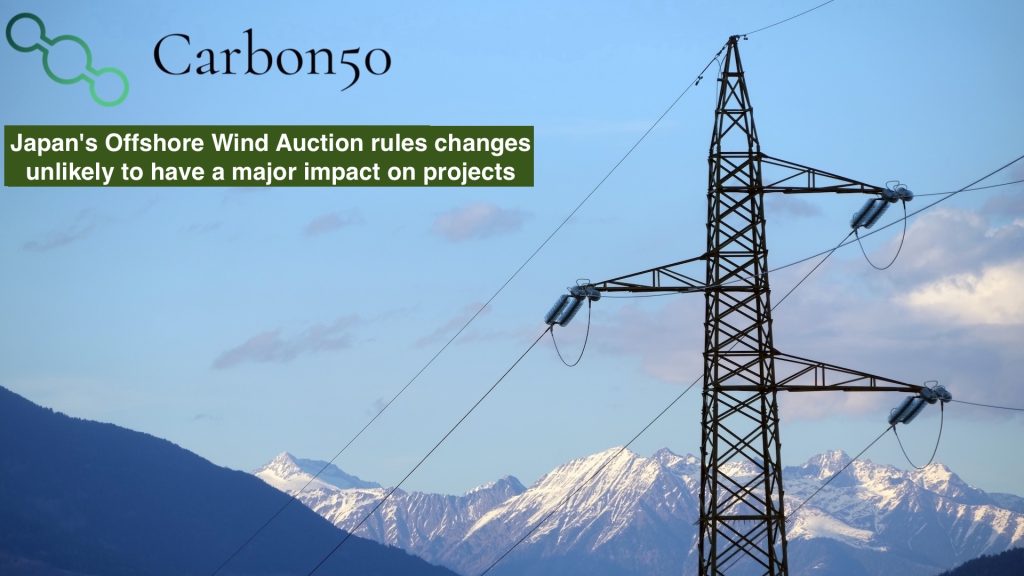The Ministry of Economy, Trade, and Industry (METI) is taking proactive steps to address rising concerns that offshore wind projects in Japan might struggle to move forward due to increasing costs. Recognizing the financial pressures, METI is considering adjustments to its auction system for designated offshore wind zones.
Under the proposed changes, the bidding price that secures maximum points would reflect the average capture price of offshore wind over the past three years, currently estimated at around ¥14/kWh. Higher price bids would earn the bidder lower points but the decrease in points would be less steap than with current rules. This shift could potentially diminish the weight of bid pricing in auctions.
However, with current projects requiring revenues of ¥20-25/kWh to remain viable, these adjustments may not significantly impact project feasibility. Developpers currently have to secure PPAs for their projects and the FIP received from the auction is not significant in the asset total revenues. A FIP premium equal to the average capture prices would, per construction, yield a ~0¥/kWh cash flow and only act as an hedge if average JEPX prices were to drop significantly year on year. With the long term trend of JEPX prices being very likely on an upward trajectory, the value of the FIP would likely be insignificant.
This announcement follows an earlier one on the possibility to adjust the FIP strike price retroactively after the bid for the increase in development and construction costs. However, this would also have a limited impact for the same reasons.
Additionally, to further support developers, JOGMEC will conduct site surveys, including wind resource assessments, and provide this data to bidders to reduce development costs. However, feedback from previous auction winners suggests that the quality of such data might fall short of their requirements, leaving developers to undertake additional surveys independently.
As Japan strives to expand its offshore wind capacity, ensuring alignment between policy, market realities, and developer needs will be critical to achieving ambitious renewable energy targets.
Source: METI

